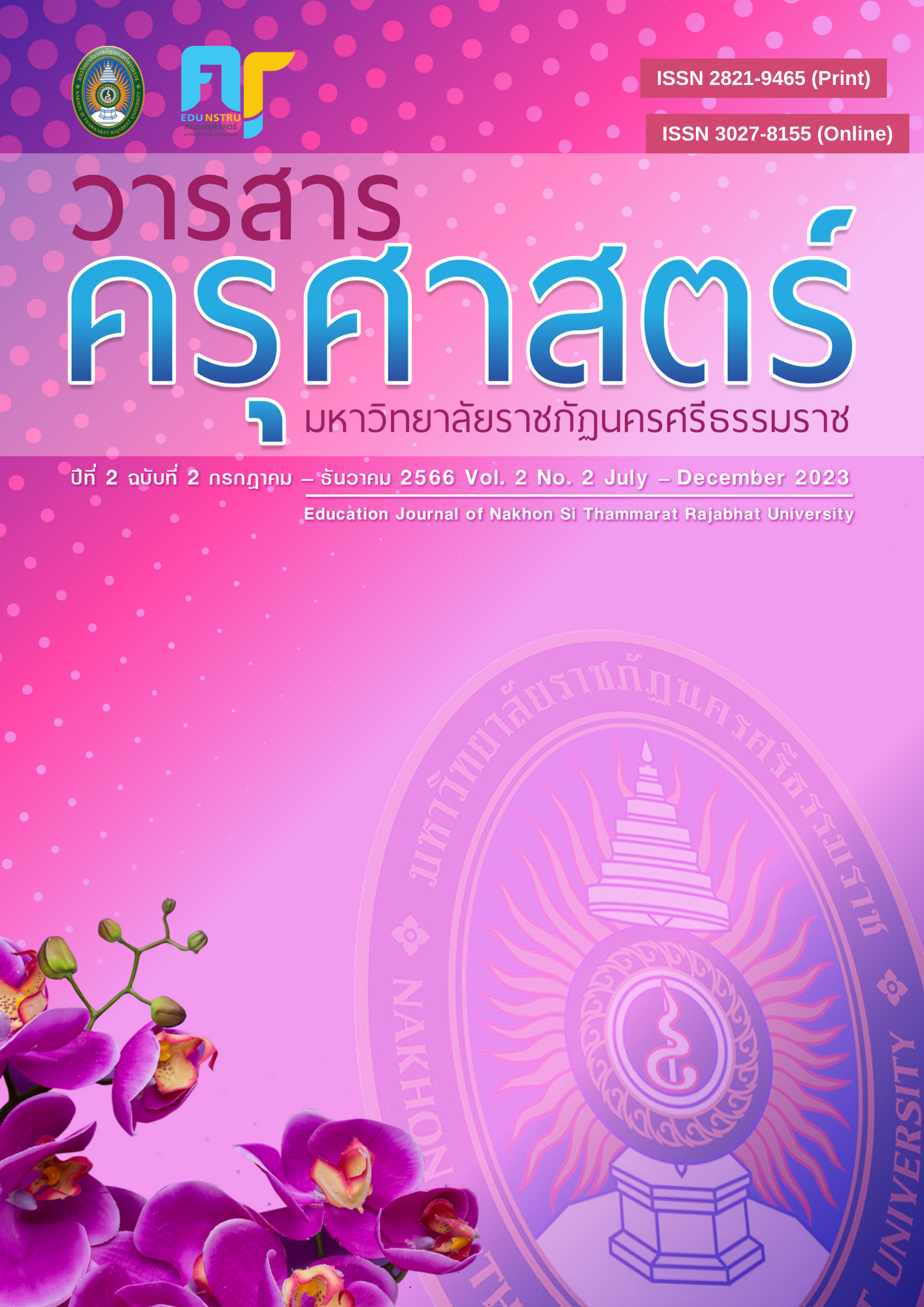ทฤษฎีฐานราก: แนวคิดและการนำใช้
Main Article Content
บทคัดย่อ
ทฤษฎีฐานรากเป็นแนวคิดและวิธีการวิจัยที่มีเป้าหมายในการสร้างทฤษฎีจากปรากฏการณ์และข้อมูลในสภาพจริงภายใต้บริบทสังคมและวัฒนธรรมที่เป็นอยู่จริง จึงทำให้นักวิชาการที่นำใช้แนวคิดและวิธีวิจัย แบบนี้เชื่อว่าวิธีดังกล่าวจะนำไปสู่ข้อสรุปและทฤษฎีที่เป็นประโยชน์ในบริบที่เป็นข้อมูลฐานรากของทฤษฎีดังกล่าว อย่างไรก็ตามข้อสงสัย และความกังวลใจของนักวิชาการจำนวนไม่น้อยในสังคมวิชาการไทยจึงทำให้ยังไม่มีการนำใช้แนวคิดและวิธีการดังกล่าวมาใช้ในประเทศไทยอย่างแพร่หลาย ด้วยเหตุดังกล่าวนี้ทำให้ผู้เขียนศึกษาและนำเสนอข้อค้นพบในบทความนี้เพราะเห็นว่าแนวคิดและทฤษฎีฐานรากนี้น่าจะเป็นอีกทางเลือกหนึ่งสำหรับนักศึกษาและนักวิชาการด้านการบริหารและการจัดการศึกษาได้เครื่องมือวิจัยทางเลือกในการแสดงหาแนวคิด ทฤษฎี และรูปแบบในการบริหารและการจัดการศึกษาอีกแนวทางหนึ่ง
Article Details

อนุญาตภายใต้เงื่อนไข Creative Commons Attribution-NonCommercial-NoDerivatives 4.0 International License.
บทความที่ได้รับการตีพิมพ์เป็นลิขสิทธิ์ของวารสารครุศาตร์ มหาวิทยาลัยราชภัฏนครศรีธรรมราช
ข้อความที่ปรากฏในบทความแต่ละเรื่องในวารสารวิชาการเล่มนี้เป็นความคิดเห็นส่วนตัวของผู้เขียนแต่ละท่านไม่เกี่ยวข้องกับวารสารครุศาสตร์ มหาวิทยาลัยราชภัฏนครศรีธรรมราช
เอกสารอ้างอิง
Babbie, E. (2007). The Practice of Social Research, (11th ed.). California: Thomson Wadsworth.
Berg, B.L. (2008). Qualitative Research Methods for the Social Sciences, (5th ed.). Boston: Pearson Education, Inc.
Bryant, A. & Charmaz, K., edited. (2007). The Sage Handbook of Grounded Theory. Los Angeles: Sage Publications.
Creswell, J. W. (2008). Educational Research: Planning, Conducting, and Evaluating Qualitative and Quantitative Research. (3rd ed.). New Jersey: Merrill Prentice Hall, Pearson.
Creswell, J.W. & Clark, V.P. (2007). Designing and Conducting Mixed Methods Research. London: Sage Publication, Inc.
Glasser, B., & Strauss. A.L. (1967). The Discovery of Grounded Theory. Chicago: Aldine Publisher.
Hood, (2007). The Sage Handbook of Grounded Theory Hood, J.C. Orthodoxy vs. Power: The Defining Traits of Grounded Theory.
Kearney, F., (2007). The Sublime to the Meticulous: The Continuing Evolution of Grounded Formal Theory. Los Angeles: Sage Publications.
Strauss, A. L. (1987). Qualitative analysis for social scientists. Cambridge University Press.


